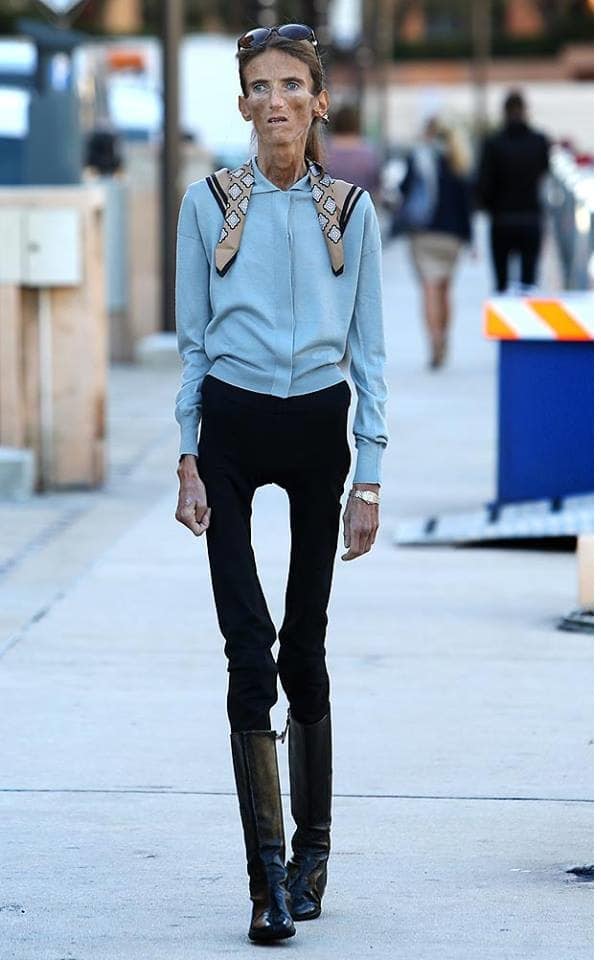Who holds the title of the skinniest person ever recorded, and what makes their story so compelling? The quest to understand the human body's extremes leads us to explore individuals whose physical forms have defied conventional norms, offering a window into rare medical conditions and the resilience of the human spirit.
The annals of medical history are filled with extraordinary tales, and among them, the story of those who have existed at the extreme end of the weight spectrum presents a unique set of challenges and insights. Often, these individuals have lived lives far removed from the everyday, confronting societal perceptions and battling medical conditions that have shaped their very existence. Their stories are not just about physical appearance; they are narratives of survival, adaptation, and the unyielding strength of the human will.
Consider the case of those who, due to circumstances beyond their control, have experienced extreme thinness. Their lives, as documented, offer a glimpse into the complexities of human biology and the impact of rare genetic disorders or other medical anomalies. While the term "skinniest" might seem to simply denote a physical attribute, the realities behind such a label are often far more intricate. The medical and personal battles these individuals have faced offer a profound perspective on the human condition.
- Unraveling The Health Status Of Doris Kearns Goodwin Does She Have Cancer
- Understanding Mkvspoint Your Goto Resource For Movie Downloads
Sprague, also known as "The Living Skeleton," stands out in the chronicles as a prime example. His appearance was a result of a rare genetic disorder. His life, though lived in the glare of public curiosity, highlights the dignity and determination with which he navigated his unique circumstances. It's essential to move beyond mere physical descriptions and recognize the human stories behind such conditions.
Then there is Lizzie Velsquez, an American motivational speaker and activist, whose life is a testament to resilience. Born with a rare genetic disorder that prevents her from gaining weight or body fat, she has become a prominent voice against bullying. Her advocacy offers powerful messages about self-acceptance, inner beauty, and overcoming adversity.
Similarly, the narratives of those like Lucia Zarate, a Mexican entertainer, provide further understanding. Diagnosed with a form of dwarfism, she weighed a mere 4.7 pounds at 17. Her life, though tragically cut short due to hypothermia, underscores the impact of medical conditions on individuals. The medical challenges they faced and the societal contexts in which they lived create a compelling mix of physical and societal struggle.
- The Future Of Commerce Exploring The Coyyncom Digital Economy
- Gravitydefying Fun The Slingshot Ride Boob Slip
In stark contrast, the pursuit of extreme thinness is not always linked to medical conditions. Sometimes, cultural pressures or personal choices can drive individuals to seek extreme weight loss. While these paths may involve health risks, the human desire to conform to certain aesthetic standards cannot be ignored.
The story also brings to light the record-keeping aspects. The Guinness World Records and other similar organizations have provided a platform to recognize and document individuals who fit into extreme physical categories, offering a way for the public to learn and to consider the extraordinary diversity of human experience. However, it is important to understand that records change, and they are only one piece of the puzzle.
In the spectrum of these individuals, we also encounter those who defy expectations in the opposite direction. Jyoti Kisange Amge, the Indian woman recorded as the "world's smallest living woman," is a testament to the breadth of human diversity. In the same vein, Chandra Bahadur Dangi, the Nepali man recorded as the "shortest man ever," demonstrates the incredible diversity of the human form. His story is a powerful example of how life continues despite challenges.
These stories are interwoven with tales of human resilience, medical curiosity, and the ways society views and values physical difference. They show us that humanity is far more multifaceted than any simple measurement or categorization. They inspire not only a sense of wonder but also respect for the human spirit.
| Category | Details |
|---|---|
| Name | Isaac W. Sprague |
| Also Known As | The Living Skeleton |
| Born | May 21, 1841, East Bridgewater, Massachusetts, USA |
| Died | Unknown |
| Notable For | Appearing as a sideshow attraction due to his extreme thinness; lived with a rare medical condition |
| Condition | Believed to have had a rare condition, potentially involving muscle atrophy or wasting |
| Career | Sideshow performer in circuses and exhibitions, including P.T. Barnum's |
| Known For | His remarkably thin physique; a unique example of the physical extremes of humanity |
| Impact | Served as a compelling curiosity, drawing attention to the extreme diversity in human physiology; example of resilience |
| Reference | Guinness World Records |
The study of these individuals is not just about the physical dimensions of their bodies; it's about the human experience. It's about the adaptations they made, the environments they navigated, and the impact their lives had on those around them. It helps in understanding how the human body can manifest in diverse forms and the importance of embracing the spectrum of human differences.
It is imperative to treat these discussions with sensitivity and respect. The words we use and the way we frame these narratives are critical, as they can significantly impact the ways these individuals are viewed by society. While the term "skinniest" might be used, it is important to remember that behind these labels are complex stories of human existence. These people and their lived experiences deserve to be treated with respect, and their stories should inspire empathy and understanding.
The exploration of the skinniest people, their conditions, and their lives offers a valuable reminder: human diversity is vast and fascinating, and every individual's narrative deserves attention and respect. Their stories enrich our understanding of the human condition and motivate us to appreciate the varied ways life can be lived.


